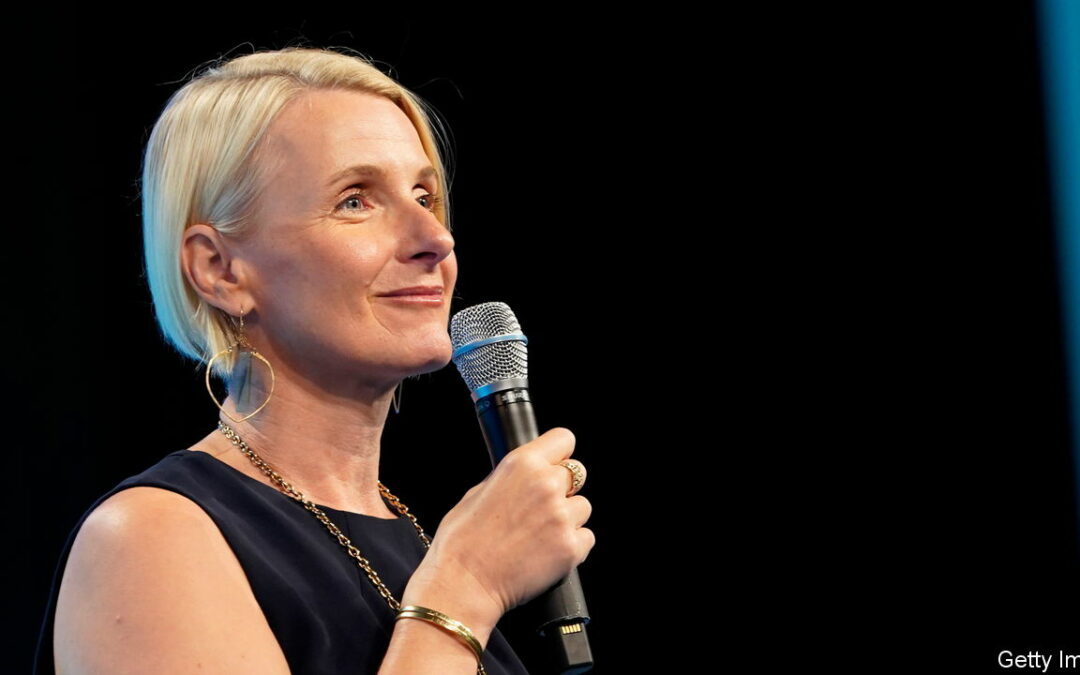ELIZABETH GILBERT, an American author, is more used to soul-searching than grappling with geopolitical problems. Her best-known work, “Eat, Pray, Love”, is a memoir about life after divorce. But in recent weeks she has been ruminating on a grislier subject: Russia’s invasion of Ukraine. On June 12th Ms Gilbert postponed indefinitely the publication of a novel, “The Snow Forest”, after hundreds of angry posts on Goodreads, a review site, mainly from Ukrainians. They object to the fact that the novel is set in Russia, in a religious-fundamentalist community in Soviet-era Siberia. Ms Gilbert’s decision had free-speech advocates fulminating over the dangers of cancel culture. Why is popular fiction being pulled into discourse about the invasion?
The furore is a curious episode in a broader debate. When the war began, many Western galleries, museums and concert halls struck Russian works from their programmes or cancelled performances by Russian artists. They were concerned that celebrating Russian culture would signal tacit acceptance of the Kremlin’s aggression. In some cases, the performers in question did indeed have links to the Russian state. Valery Gergiev, for instance, a famous conductor, played a concert organised by the Kremlin in Palmyra, a Syrian city, in 2016 after Russian forces helped the Syrian army to recapture it from Islamic State. State-backed institutions such as the Bolshoi Theatre have long enjoyed a glowing international reputation.
Severing links to such individuals and organisations blocked obvious avenues for Russian soft power. But other aspects of the debate are more complicated. Some Russian artists who had publicly condemned the war also had their performances cancelled. Some people even suggested that 19th-century Russian literary greats, such as Fyodor Dostoyevsky and Alexander Pushkin, should be reappraised. Western readers, the theory went, had been blind to the imperial sentiments of these authors, who had helped to cultivate a thirst for expansionism within Russian culture and society.
These writers’ works do, in places, include brazen support for imperial conquest. But associating long-dead authors with Russia’s invasion is a stretch (plenty of Western authors of the time held imperialist views). Ms Gilbert’s case takes the discussion to an altogether different, and frankly puzzling, level: merely writing about Russia is cast as being incompatible with showing support for Ukraine. It is unsurprising that her decision to delay the novel’s publication has been called “well-intended” but “wrongheaded” by PEN America, a non-profit organisation that promotes artistic free expression.
Still, the backlash against “The Snow Forest” reflects frustration in Ukraine. From intellectuals to keyboard warriors, many Ukrainians bemoan what they perceive as a Western tendency to romanticise Russian culture as a source of universal wisdom on human nature, justice and power. They also accuse Westerners of regularly mislabelling art from other places in Eurasia, including Ukraine, as “Russian”.
Scholars in the West are taking note. Many speak of “decolonising” the study of Russia and eastern Europe. That means encouraging academics to focus on the legacy of Russian imperialism in their research and persuading universities to expand their teaching of other eastern European cultures. Studying the culture of the ethnic minorities who live within Russia is also important, notes Elena Sudakova, head of Pushkin House, an arts institute in London that focuses on work from Russia and its neighbours. It is unclear whether “The Snow Forest” would have touched on these subjects.
For Ms Gilbert, the stakes of the Goodreads debacle seem relatively low: she will probably publish her novel one day. For Ukrainians, the stakes are higher. The Kremlin denies the existence of a discrete Ukrainian history and identity. That makes culture a matter of survival. ■









